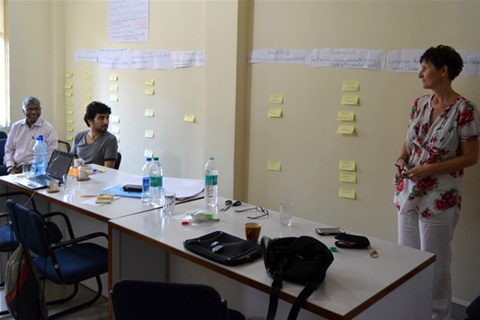3. Feb, 2015
Cross-sector practices helping to make social impact more effective
The philosophy of The Impact Effect is that organisational practices, systems and process typically used in the private and/or public sectors, can be innovatively utilised by a non-profit in order to strengthen the organisation, enable sustained financial viability, and optimise its social impact. Likewise, methodologies used in the non-profit sector can be utilised effectively in the private sector to enable a business's corporate social responsibility. In these ways, cross-sector practices are helping to make social impact more effective.
EXPERIENCE and RESEARCH tells us:
- Organisational capacity development practices, methodologies and processes can be leveraged across sectors, despite the different complexities in each sector
- While private sector businesses are focused on effectiveness and efficiencies, non-profit organisations also value these qualities – they recognise that in order to optimise social impact, non-profits also need to strive to be the best they can be organisationally, so as to ensure optimal benefits for beneficiaries and stakeholders
- The private sector is increasingly incorporating social meaning and non-profit methodologies, in order to establish social foundations and corporate social responsibility streams to their businesses
- Global economic trends and pressures have resulted in funding for non-profit organisations becoming increasingly competitive. Securing funds and ensuring sustained financial viability is increasingly a growing focus and concern
- Non-profit organisations can achieve sustained financial viability through the development of a 'social enterprise', i.e. a business venture specifically established to facilitate social change and generate profits which are reinvested into the non-profit organisation and/or directed towards the social actors participating in the social enterprise, and/or social change efforts
- An effective method of scaling social impact is through ‘social franchising’, i.e. the development of partnerships with a view to replicate a social entity’s model, processes and systems, while retaining a connectivity to ensure cohesiveness, quality control, and leverage of scale. It is possible to franchise both a non-profit organisation and a social enterprise.
